Let’s face it, pool equipment is not cheap. That’s why pool maintenance is crucial to the longevity and overall performance of your pool system. The more maintained your pool is, the less money you spend each season, and the happier your pockets become. Many of our customers do spend the extra dollar to have a pool professional maintain and monitor their pool. Still, the majority of our customers prefer to save a dime when they can. No one wants to spend money on something they could have easily prevented.
Any step you take as a pool owner to maintain your pool can go quite a long way when talking about the lifespan of your equipment. To help you along the way, here are five inexpensive things all pool owners can and should do to prolong the lifespan of their pool equipment.
1. Skim debris and clean out skimmer and pump baskets.

Skimming your pool’s surface by hand with a standard leaf skimmer every few days is one of the fastest and easiest ways to keep your pool water clean. Floating debris in your pool will eventually sink, making it harder and more time consuming to remove. You can use a hand skimmer or a leaf net to remove leaves, bugs, and any other unwanted critters you may find in your pool. Skimming significantly increases the efficiency of the pool’s circulation system and lowers the amount of chlorine you will need to put into your pool.
Ensuring your skimmer and pump strainer baskets are cleaned once a week is also a rather simple habit that will help your pool in the long run. It helps the circulation and lowers chlorine demands. It’s easy too – simply remove the plastic basket and shake it out. You can spray the inside with a hose to help dislodge any stubborn debris.
2. Keep your filter clean.
No matter which type of filter you have, sand, cartridge, or diatomaceous earth (DE), keeping the filter clean is essential. Although each type of filter has its own regiment or maintenance requirements, all require periodic cleaning. Keep in mind, there is such a thing as over cleaning. Cleaning the filter more frequently than recommended can actually hinder the process and make the system less efficient. Make sure to check manufacturer’s recommendation for cleaning and take into account your physical location and water chemistry. Pool owners who use their pool more may be required to clean their filter more often.
If you see an increase in flow between the pressure gauge and flow meter, then it’s time to clean your filter. Clean the filter when the difference reaches 10-15 lbs per square inch. A clean filter is less efficient than one with a small amount of dirt because the existing dirt helps trap other dirt particles. Still, you do not want to let your filter get too dirty.
Cleaning your filter may also be necessary after a heavy storm. A lot of random debris and leaves end up in unimaginable places after extreme weather, so it’s always a good idea to inspect your pool equipment soon after.
3. Ensure your pressure gauge is working.

As a pool owner, you should get used to checking your pressure gauge on a weekly basis. The pressure gauge indicates the force of water flowing through your system in pounds per square inch (PSI). Although the ideal pressure for every pool varies, it is essential to monitor the gauge regularly. If the pressure reads higher than normal, then your filter is probably working too hard. Your water may be dirty or the filter might need to be cleaned.
We also get a lot of calls because of “extremely high pressure” but the pool owner is unable to determine where the pressure is coming from. Well, check your pressure gauge. It could very well be a bad gauge. Pressure gauges are typically fairly inexpensive. So, when in doubt – change your pressure gauge.
4. Change and lube your o-rings and gaskets.
O-rings and gaskets play an important role in safeguarding internal equipment parts from water damage and pressure build up, neither of which are ideal for a healthy and efficient pool system. Changing out old pump and filter o-rings is a simple task and can save you hundreds of dollars in replacement parts.

The pool filter head o-ring plays an important part in the function of your pool filter. If the tank o-ring is not in good condition, it can cause the filter tank to leak and lose pressure. It is always a good idea to check the condition of the filter tank o-ring each time you clean or change your filter cartridges or grids.
Whenever you replace your pool pump motor, the manufacturer recommends replacing at least the shaft seal on your pump. Still, there are other gaskets and o-rings within the pump besides the shaft seal. While you have your motor un-installed, it’s best to simply take advantage and replace all the o-rings at once. This will secure you from any potential leaks from other areas in the pump and it will also safeguard the one year warranty on the new motor. Pool owners who do not replace the shaft seal whenever they replace their motor run a very high risk of ruining the motor by water damage. Water damage is not covered under the manufacturer warranty and the customer would be forced to buy another brand new motor.

Other important o-rings that should be checked periodically are: chlorinator o-rings, filter valve o-rings, skimmer o-rings, and fitting and union o-rings. Always remember to lube your o-rings as well. This increases the lifespan of the o-ring and ensures proper protection. Lube is usually included with any o-ring kit, but can also be purchased separately in small quantities for pretty cheap.
5. Keep an eye on the chlorine stabilizer levels
Chlorine stabilizer, or cyanuric acid, is the pool chemical that protects the chlorine level in your pool from being depleted by the sun. When you add chlorine to your pool, for the most part the chlorine is unstable. Meaning, it does not last very long in the water to fight the bacteria and other contaminants. Adding chlorine stabilizer keeps the chlorine in the water longer to fight whatever it needs to. Chlorine is quickly oxidized by the sun and stabilizer prolongs the oxidation period.

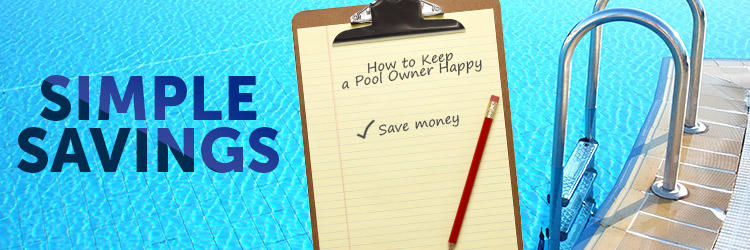


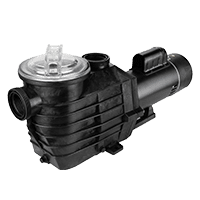
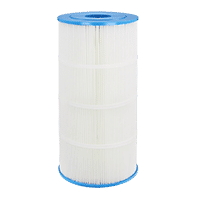
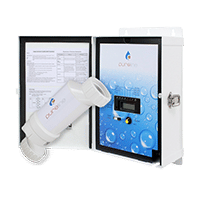
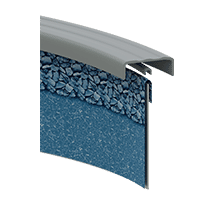




Leave a Reply